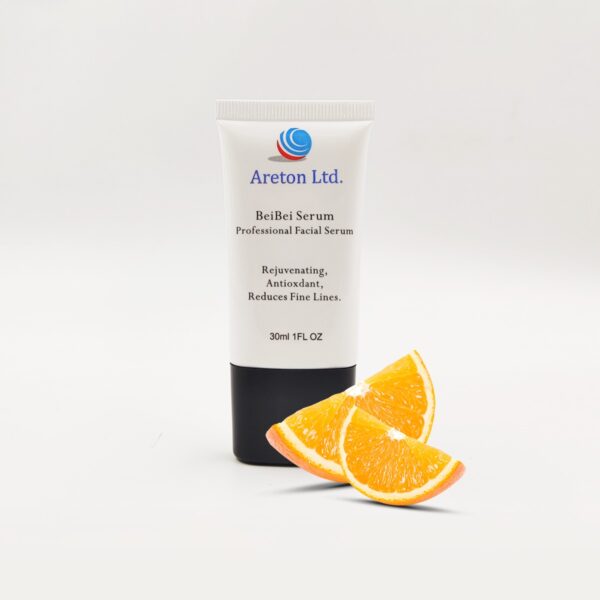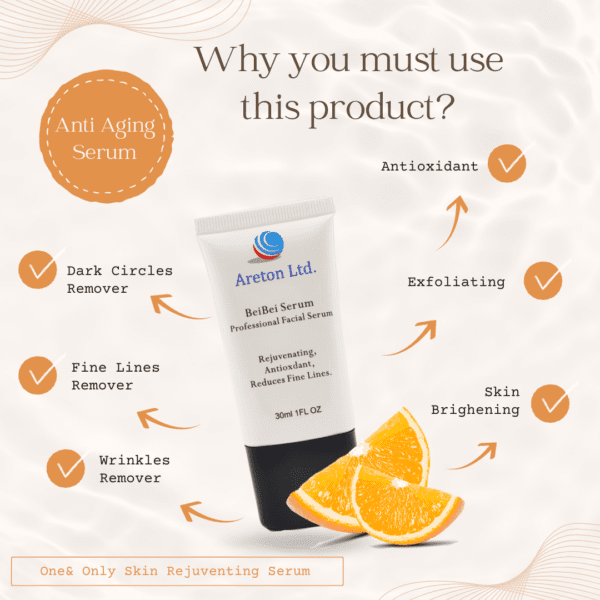[vc_row][vc_column][vc_column_text]
Overview
A kind of vitamin B3 is nicotinamide, often known as niacinamide. In addition to meat, fish, milk, eggs, green vegetables, and cereals, it can also be found in many other foods.
For sugars and fats to operate properly in the body and to keep cells healthy, niacinamide is necessary. When niacin is consumed in quantities more than what the body requires, it is transformed to niacinamide. Niacinamide doesn’t aid in the treatment of elevated cholesterol, unlike niacin.
Niacinamide is used to prevent vitamin B3 deficiency and related illnesses including pellagra. There isn’t enough solid scientific evidence to support the majority of these claims, which include treating ailments including acne, diabetes, cancer, osteoarthritis, ageing skin, skin discolouration, and many others.
Niacinamide should not be confused with niacin, L-tryptophan, NADH, nicotinamide riboside, or inositol nicotinate. They are not equivalent.[/vc_column_text][vc_empty_space][/vc_column][/vc_row][vc_row][vc_column width=”1/2″][vc_column_text]
What is niacinamide ?
A kind of vitamin B-3, niacinamide, commonly known as nicotinamide, is a necessary nutrient. Disorders of the skin, kidneys, and brain can result from a B-3 shortage. Niacinamide supplementation can help avoid B-3 deficiency.
And this nutrient has a lot more benefits, particularly for the wellbeing of the skin in general. Topical niacinamide may be used to treat a variety of skin disorders, including eczema and acne, though additional research is required.
Is this the same thing as niacin ?
Niacinamide is not the same as niacin, despite their names being similar. B-3 comes in two separate varieties.
However, the niacin supplements you’ve taken can help your body create niacinamide. This occurs when the body has an excessive amount of niacin. Niacinamide can also be created by the body from tryptophan.
Before taking vitamin B-3 or any other supplements, you should always see a doctor.[/vc_column_text][/vc_column][vc_column width=”1/2″][vc_single_image image=”9276″ img_size=”500*600″][/vc_column][/vc_row][vc_row][vc_column][vc_empty_space][/vc_column][/vc_row][vc_row][vc_column width=”1/2″][vc_single_image image=”9280″ img_size=”full”][/vc_column][vc_column width=”1/2″][vc_column_text]
What benefits does niacinamide offer ?
Overall, niacinamide can help build proteins in the skin and lock in moisture to prevent environmental damage.
Individual benefits include:
• Immunity. Keratin, a type of protein that keeps your skin tight and healthy, is formed with the aid of niacinamide.
• Lipid membrane. Niacinamide can aid in the development of your skin’s ceramide (lipid) barrier, which in turn can aid in moisture retention. This is advantageous for all skin types, but it’s especially helpful if you have older skin or eczema.
• Reduces blotchiness and redness to a minimum. Inflammation is reduced by niacinamide. This may lessen the redness caused by eczema, acne, and other inflammatory skin disorders.
• pore appearance. maintaining hydrated and smooth skin Using Trusted Source might also result in a gradual decrease in pore size.
[/vc_column_text][/vc_column][/vc_row][vc_row][vc_column][vc_column_text]
• Regulates oil. Not only people with dry skin types can benefit from moisture retention. The sebaceous glands’ ability to create oil can also be controlled by niacinamide, which likewise helps keep your glands from working too hard.
• Protects against sun damage. Niacinamide has the dual benefits of repairing healthy skin cells and shielding them from UV light harm.
• Treats hyperpigmentation. Niacinamide concentrations of 5% have been observed to help lighten black spots, according to some studies. After four weeks, benefits were noticeable, but not after two months. Increased collagen production may be the cause of this advantage.
• Minimizes fine lines and wrinkles. Additionally, studies have shown that the same concentration can help lessen some of the ageing effects of solar damage. Wrinkles and fine lines fall under this.
• Protects against oxidative stress. Niacinamide shields skin cells from external challenges like sunshine, pollution, and pollutants while also aiding in cell growth.
• Treats acne. Niacinamide, especially in inflammatory forms like papules and pustules, may be beneficial for severe acne. You might notice improved skin texture and a decrease in blemishes over time.[/vc_column_text][/vc_column][/vc_row][vc_row][vc_column][vc_empty_space][vc_column_text]
Do skin care products outweigh dietary and supplement needs ?
The best approach to consume micronutrients like vitamin B-3 is through a balanced diet. Only use supplements under a doctor’s guidance to cure deficiencies.
You may get some of the advantages of niacinamide from the foods you eat when it comes to general skin health.
Vitamin B-3 is found in:
• eggs
• cereals
• green veggies
• beans
• fish
• milk
However, there is no way to ensure that the nutrients in your diet are having an effect on the general health of your skin. Utilizing niacinamide topically is the only approach to make sure it is addressing your skin care issues.[/vc_column_text][/vc_column][/vc_row][vc_row][vc_column][vc_column_text]
Does the kind of skin care product you use or how you use it in your regimen matter ?
Numerous serum-based topical niacinamide solutions are available. Consider serums as additional treatments that go beyond routine washing, toning, and moisturising to target specific skin issues.You should apply your niacinamide serum after toning but before moisturising.
Niacinamide is also present in certain lotions and cleansers. Some facial masks with this component are also used, however they must be rinsed off after each application.
Read the directions for use carefully on each product’s label.
Which ingredients can you combine with niacinamide ?
It is challenging to determine how beneficial niacinamide might be on its own because it is typically evaluated in conjunction with other topical treatments rather than by itself. According to the existing data, if hyperpigmentation, fine lines, or wrinkles are your main concerns, well-studied alternatives like prescription retinoids (and sunscreen!) or other antioxidants, such vitamin C, would definitely benefit you more than niacinamide. Niacinamide, though, might be a good alternative if your skin is too sensitive to handle those other options or you’re just seeking for a milder treatment for whatever reason.
For instance, the niacinamide’s ability to preserve the skin’s barrier can counteract the dryness and irritability that retinol products can cause. Salicylic acid, which can also be drying to your skin, and niacinamide have a similar mechanism of action. Niacinamide and vitamin C can be combined safely, but some people may experience irritability as a result, he adds.[/vc_column_text][vc_single_image image=”9283″ img_size=”full”][/vc_column][/vc_row][vc_row][vc_column][vc_column_text]
How do you use niacinamide in skin care ?
Niacinamide can be used daily for skin care, especially as a moisturiser for the day. Look for a product in that range, and we also recommend a concentration of 5% if you want to see any anti-aging or improvement in hyperpigmentation. The majority of the significant research that we’ve listed here employed topical formulations containing 2-10% niacinamide.
Topical niacinamide, in the opinion of certain dermatologists, is more efficient overall. Topical application is safer than oral supplements for skin-care issues and has a more immediate impact on skin appearance. You should limit your intake to 35 mg per day if you choose to use an oral niacinamide supplement because you are lacking in vitamin B3 or are at high risk for developing certain skin cancers.
No matter what type of skin you have, topical niacinamide is generally safe to use. However, persons with allergic tendencies may experience a flushing reaction because of the release of histamine. Additionally, he continues, “skin reactions from topical treatment can occasionally include burning, redness, skin irritation, and itching. This may occur when applying near delicate areas, such as the eyes, but, as previously said, with time, your skin should develop a resistance to niacinamide use.[/vc_column_text][vc_single_image image=”9284″ img_size=”full”][vc_empty_space][/vc_column][/vc_row][vc_row][vc_column][vc_column_text]
How to Add Niacinamide to Your Skin-Care Routine
Due to the numerous advantages it provides your skin, niacinamide is a fantastic addition to just about any skin-care regimen. In addition to aiding in the formation of collagen, this ingredient’s mild anti-inflammatory properties may help reduce the likelihood of discomfort from other active chemicals you may be utilising, like as retinols and AHAs like glycolic acid.
Both the morning and the evening are suitable times to use niacinamide products. using niacinamide frequently Given the variety of skin-care issues, I advise using this component both day and night. It can be found, for example, in moisturisers, sunscreens, and overnight creams.
After choosing a niacinamide-containing skin care product, it’s wise to conduct a spot test to see if your skin is compatible with this ingredient. A tiny patch of skin should be treated with a small amount of the product to check for any negative reactions.
How long does niacinamide take to work ?
Generally speaking, after 2-4 weeks of twice-daily use, you should start to see effects (depending on the severity of your skin concerns and how concentrated your niacinamide product is). Continuous use is necessary for improvement.
Even though results will continue to advance over time, don’t anticipate your skin to be fully “poreless”—no skin care product can do that (not to mention, your skin needs its pores for many vital functions). Pores that appear smaller, skin tone that appears more even, significantly less fine lines and wrinkles, and an overall healthier glow are what you may anticipate.
Summary on Niacinamide
Niacinamide, a type of vitamin B3, is a well-tolerated component that is used in a variety of skin-care products for a variety of objectives, including moisturising, brightening, and anti-acne effects. Choose a product that is left on the skin for optimal absorption and choose a concentration of less than 5 percent if you want to incorporate it into your skin-care routine (like a moisturiser or serum).[/vc_column_text][vc_empty_space][/vc_column][/vc_row][vc_row][vc_column][vc_column_text]
Our Costmetic Products
[/vc_column_text]





